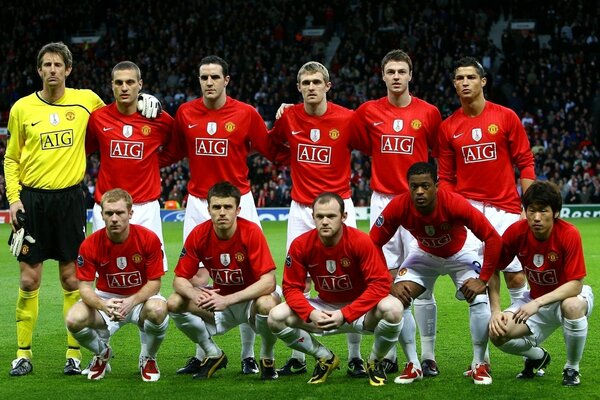In the United Kingdom, there is one sport that reigns supreme above all others – football. The most popular sport in UK, football holds a special place in the hearts of millions of Britons. From the bustling streets of London to the serene countryside of Scotland, the passion for football unites people across all regions and backgrounds. This article delves into the rich history, cultural significance, and enduring popularity of football in the UK.
A Historical Perspective of Football
Football has a long and storied history in the UK, dating back to the 19th century when the modern game began to take shape. The Football Association (FA) was founded in 1863, marking the official birth of organized football in England. Since then, the sport has evolved into a national obsession, captivating fans with its thrilling matches, iconic rivalries, and legendary players. The roots of football run deep in British culture, shaping communities and fostering a sense of identity and belonging.
The Rise of Football as the Most Popular Sport in UK
Over the years, football has grown exponentially in popularity, becoming deeply ingrained in the fabric of British society. The Premier League, established in 1992, revolutionized English football and propelled it to new heights of global recognition. With its fast-paced action, competitive spirit, and world-class talent, the Premier League has captured the imagination of fans worldwide. The league’s success has played a pivotal role in cementing football’s status as the most popular sport in UK.
Football: More Than Just a Game
Football is not just a sport in the UK; it is a cultural phenomenon that transcends boundaries and unites people from all walks of life. Match days are celebrated with fervor and passion, as fans don their team colors and flock to stadiums to cheer on their beloved clubs. The camaraderie among supporters creates a sense of community and shared purpose that is unparalleled in any other sport. Football has the power to bring people together, forge lasting friendships, and create memories that last a lifetime.
The Economic Impact of Football
The popularity of football in the UK extends beyond the pitch, influencing various aspects of society including economics. The sport generates billions of pounds annually through ticket sales, broadcasting rights, merchandise, and sponsorships. Football clubs serve as economic engines for their local communities, creating jobs and driving tourism. The financial impact of football underscores its significance as not just a sport but also a thriving industry that contributes significantly to the UK economy.
The Future of Football in the UK
As we look to the future, it is clear that football will continue to hold sway as the most popular sport in UK. With advancements in technology, increased global reach, and evolving fan preferences, football is poised to reach even greater heights of success and popularity. The passion for the game remains unwavering among fans young and old, ensuring that football will remain an integral part of British culture for generations to come.
The Global Reach of Football
Football’s popularity extends far beyond the borders of the UK, encompassing a truly global audience that transcends cultural, linguistic, and geographical barriers. The FIFA World Cup, held every four years, stands as a testament to football’s universal appeal, drawing billions of viewers from around the world. International competitions like the UEFA Champions League and Copa Libertadores showcase the best clubs from different continents, fostering a sense of camaraderie and competition on a global scale. Football has the power to unite nations and inspire generations with its universal language of passion and skill.
The Influence of Technology in Football
In recent years, technology has played an increasingly significant role in shaping the landscape of football. Video assistant referees (VAR), goal-line technology, and advanced analytics have revolutionized the way matches are officiated, decisions are made, and players are evaluated. These technological advancements have brought greater accuracy and fairness to the game while sparking debates among fans and pundits about their impact on the traditional aspects of football. As technology continues to evolve, its influence on football is likely to grow even further, shaping the future of the sport in unforeseen ways.
The Role of Women in Football
While historically dominated by male players, football has seen a remarkable rise in the participation and recognition of women in recent years. Women’s football has gained momentum globally, with leagues expanding, talent flourishing, and audiences growing. Events like the FIFA Women’s World Cup have showcased the skill and athleticism of female players on an international stage, inspiring young girls around the world to pursue their dreams in football. The increasing visibility and support for women’s football signal a positive shift towards greater gender equality in the sport.
Youth Development in Football
The cultivation of young talent is essential for sustaining the future success of football at all levels. Youth academies run by professional clubs provide aspiring players with training, coaching, and opportunities to develop their skills from an early age. These academies serve as breeding grounds for future stars who go on to represent their clubs and countries on the international stage. Investing in youth development not only ensures a pipeline of talent for clubs but also nurtures a culture of excellence and professionalism that permeates throughout the sport.
The Business of Football
As one of the most lucrative industries in the world, football has become big business with multi-million-pound transfers, lucrative sponsorship deals, and massive broadcasting rights agreements dominating headlines. Clubs operate as global brands with dedicated fan bases spanning continents, generating revenue through merchandise sales, ticketing, broadcasting rights, and commercial partnerships. The financial stakes in football are higher than ever before, leading to increased competition among clubs to secure top talent and achieve success both on and off the pitch.
Environmental Sustainability in Football
In recent years, there has been a growing emphasis on environmental sustainability within the football industry. Clubs are implementing eco-friendly practices such as reducing carbon emissions, promoting recycling initiatives, and investing in renewable energy sources to minimize their environmental impact. Major tournaments like the UEFA European Championship have adopted sustainable practices to reduce waste and promote conservation efforts during events. By prioritizing environmental sustainability, football is taking steps towards becoming a more responsible industry that contributes positively to environmental preservation.
The Most Famous Football Teams In The UK

The most famous football teams in the UK are Manchester United, Liverpool, Aston Villa, Chelsea, West Ham United, and Arsenal. These teams have a strong presence in the English Premier League (EPL) and are renowned for their success, fan base, and historical significance.
Manchester United, with over 80 million followers on Facebook, is the most popular team in the UK and has won the most titles, including 20 English top-flight championships. Liverpool, with 70 trophies, is another major player in the EPL and has a strong fan base both in the UK and globally.
Aston Villa, Chelsea, West Ham United, and Arsenal are also among the most famous football teams in the UK, with a rich history and loyal fan bases. These teams have contributed significantly to the growth and popularity of football in the UK, with their success on the pitch and their impact on the wider community.
Other Most Famous Sports in UK
1. Cricket

Cricket is considered the national sport of the UK, particularly in England, and has a rich history dating back to the 16th century. It is a bat-and-ball game played between two teams of 11 players, with each team taking turns to bat and score runs. England and Australia have a famous cricket rivalry, with the Ashes being a major competition between the two countries
2. Rugby

Rugby is another popular sport in the UK, with two broad categories: Rugby Union and Rugby League. Rugby Union is more well-known, while Rugby League is more popular in the North of England. England has a strong pedigree in Rugby Union, having won the World Cup in 2003 and making the final in 2007 and 2019. Wales and Scotland also have a deep love and heritage in Rugby Union.
3. Tennis

Tennis is a popular participant and spectator sport in the UK, with hundreds of thousands of people playing and watching the game. Wimbledon, one of the most famous tennis tournaments in the world, takes place in June and is a traditional event for Brits.
4. Horse Racing

Horse racing is often referred to as “The sport of Kings” and is deeply rooted in UK culture. The Queen is a big racing fan and even owns her racehorses. The UK hosts thousands of horse racing events throughout the year, driving millions of fans from different countries and generating significant revenue for the economy.
These sports, along with football, contribute to the rich and diverse sporting culture of the UK, attracting millions of passionate fans and players.
Conclusion
Football stands tall as the most popular sport in UK, capturing hearts and minds with its rich history, cultural significance, and enduring appeal. From grassroots clubs to elite leagues, football permeates every aspect of British society, uniting fans in a shared love for the beautiful game. As we celebrate the legacy and impact of football in the UK, one thing remains certain – its status as the undisputed champion among sports shows no signs of waning anytime soon.
Read More: What is the Most Dangerous Sports?



